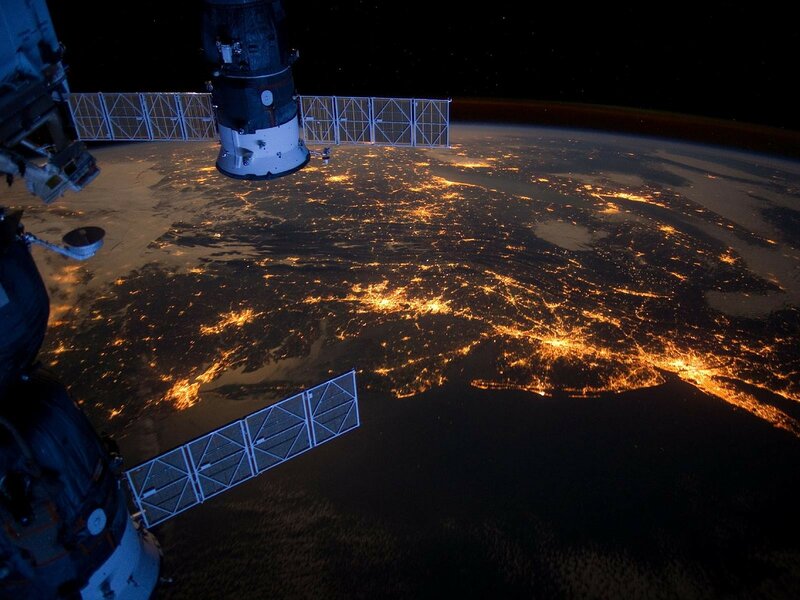Microsoft President, Brad Smith, recently announced the company’s newest advancement as part of its AI for Earth initiative. Microsoft will use computer learning and computing power to agglomerate global environmental data into a planetary computer. The planetary computer, described as a “global portfolio of applications connecting trillions of data points,” is designed to use artificial intelligence to synthesise environmental data into practical information regarding the Earth’s current ecosystems.
—
At the beginning of this year, Microsoft announced its goal of becoming carbon negative by 2030. Now, the company is going a step further and focusing attention on the world’s lack of comprehensive, global environmental data. A daunting task, Microsoft’s Chief Environmental Officer, Dr. Lucas Joppa, imagines an international database that would provide the world with “information about every tree, every species, all of our natural resources.”
The planetary computer will aggregate environmental data contributed by individuals around the world coupled with machinery placed in water, space, land and air environments. For the first time, there will be a concise and comprehensive compendium of international ecosystem data. Not only will this allow for essential environmental information to be readily available to individuals across the world, but the planetary computer will predict future environmental trends through machine learning design.
Microsoft customers and partners can use the planetary computer’s synthesised data and predictions to make eco-friendly business and personal decisions. Furthermore, Microsoft has pledged to use the system to take responsibility for the company’s own land footprint and advocate for public policy changes.
You might also like: Researchers Create New Modified Wheat Which May Help Avert Global Food Crisis
Smith acknowledges man’s reliance on nature is incontestable, while pointing out that the status of much of the world’s resources are largely unknown. “For the first time, we would be able to fully understand what resources are where, how fast they’re being depleted and more importantly, what we could and should be doing with all our natural resources.”
70% of cancer drugs are natural or synthetic products originally found in the environment, 75% of global food crops rely on animal pollination and marine and terrestrial ecosystems sequester 60% of global anthropogenic emissions. However, humanity has had a hand in pushing the planet to the brink of environmental collapse. As of 2019, 25% of those same animal and plant species that provide us with food and medicine are threatened and 85% of wetlands that sequester emissions have been lost or altered due to human activity. It was not until the Global Assessment Report on Biodiversity and Ecosystem Services was published did these statistics become known to the general public. In order to protect the very resources we depend on, we must understand the quantity and way in which resources are being used. The planetary computer will monitor, model and manage Earth’s natural, limited resources while tracking ecosystems and species.
Similar models have been employed in the past. In 1995, the UN launched the Global Environmental Outlook (GEO) Project which assessed Earth’s environmental status in order to offer global guidance on sustainability. It took five years for the report to be researched and published, and much of the Earth’s resources changed in those years.
In 2019, the Intergovernmental Science-Policy Platform on Biodiversity and Ecosystem Services (IPBES) released the Global Assessment Report on Biodiversity and Ecosystem Services. The report took years to publish and relied mainly on manpower. Microsoft values the knowledge contained in these reports but believes the information should be readily available to the world more easily and more regularly. Smith argues that “it should be as easy for anyone in the world to search the state of the planet as it is to search the internet for driving directions or dining options,” and Microsoft believes technology and artificial intelligence is the key to get there.
Microsoft is providing the world with a ground-breaking chance to correct our negative environmental impacts and move forward through personal, business and international governmental actions to preserve and protect biodiversity. In addition to providing the technological platform for innovation, Microsoft is leading by example through public policy activism. Microsoft is outspoken in its support of governmental national ecosystem assessments, public land and water conservation, governmental infrastructure to measure and monitor ecosystems and enhanced public-private partnerships. Microsoft has also made a pledge to preserve more land than it uses by 2025.
While Microsoft acknowledges it is undertaking the world’s greatest data, computing and algorithmic challenge, the company is steadfast in its commitment to “put the full power of Earth-scale data right at people’s fingertips” in hopes that this information will allow people to “come together and solve some of the greatest environmental and sustainability challenges we face today.”


















